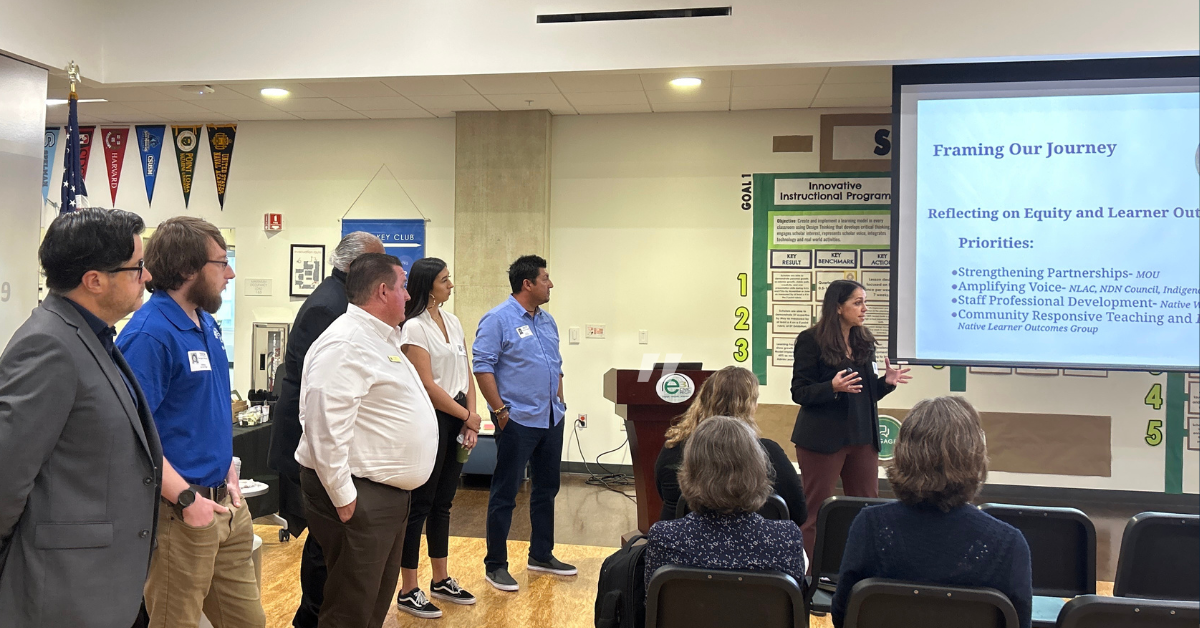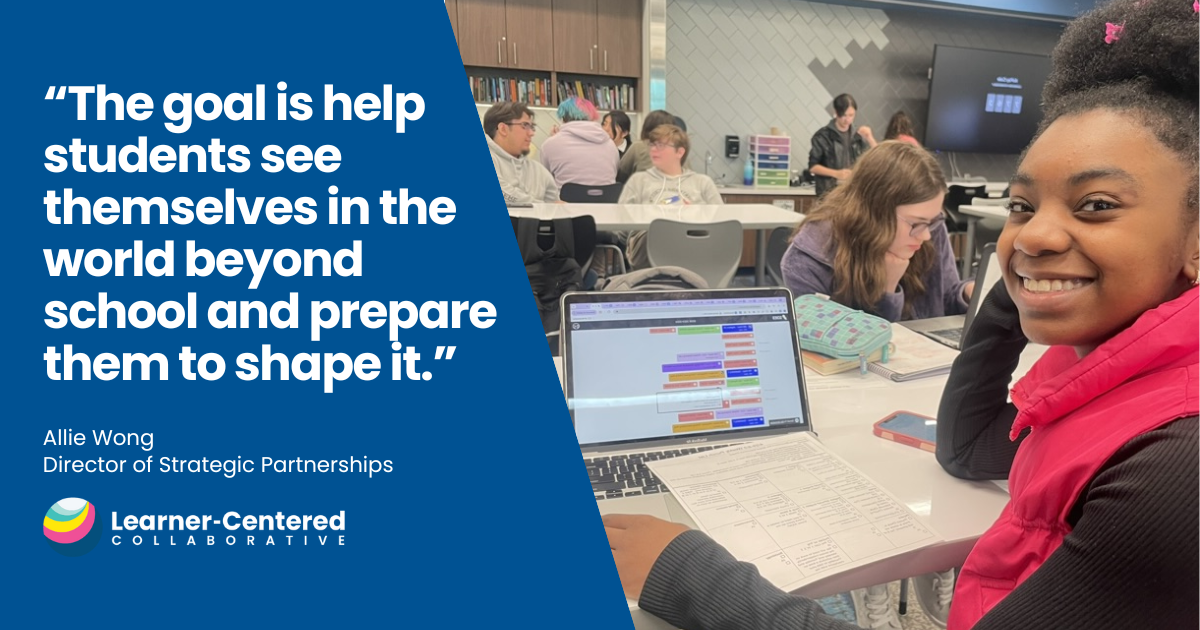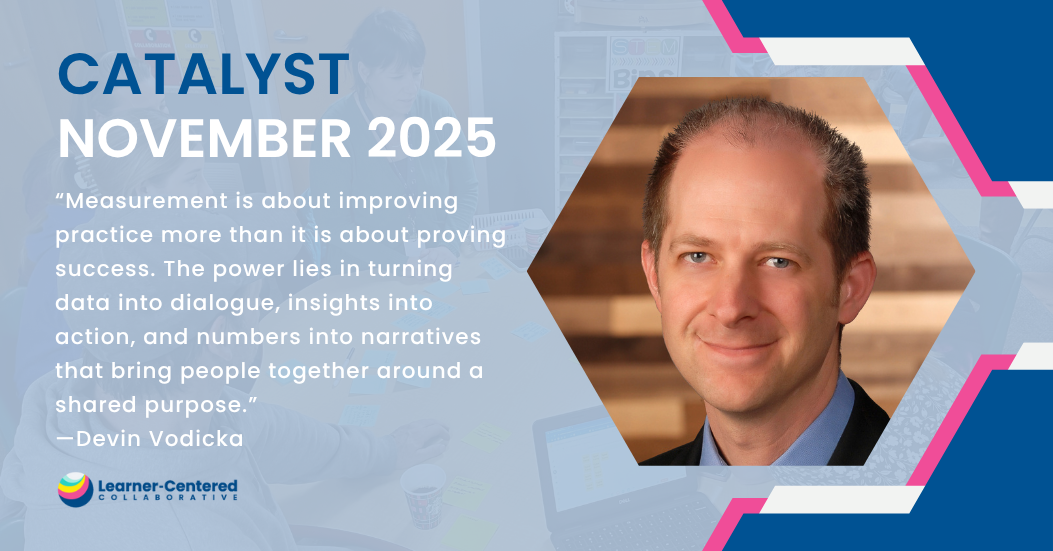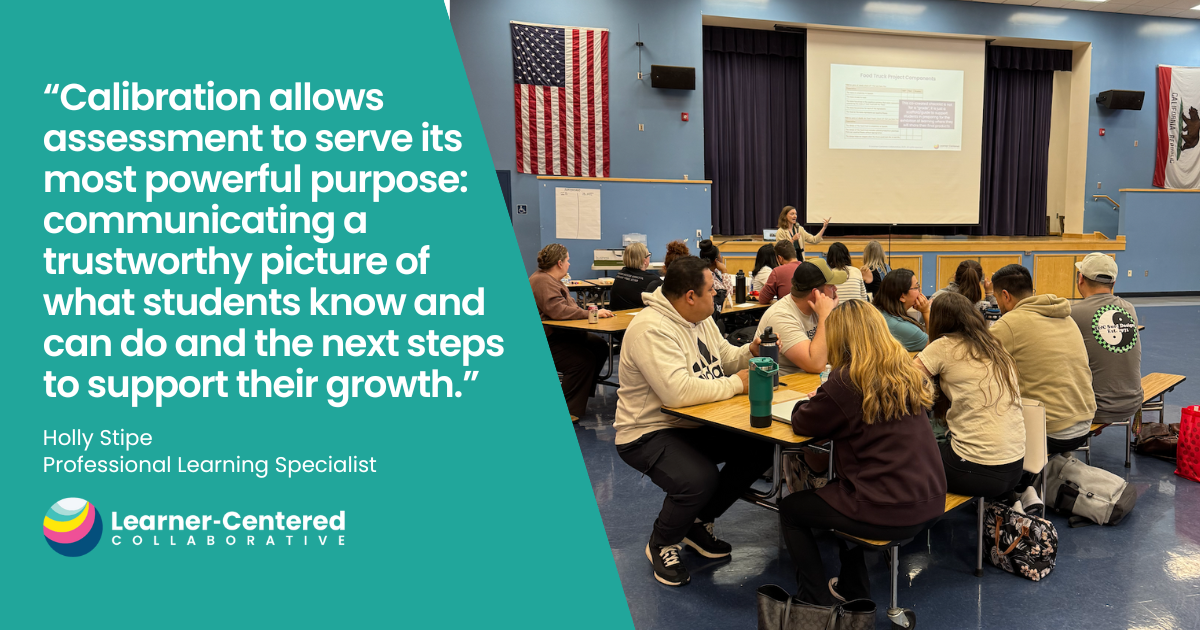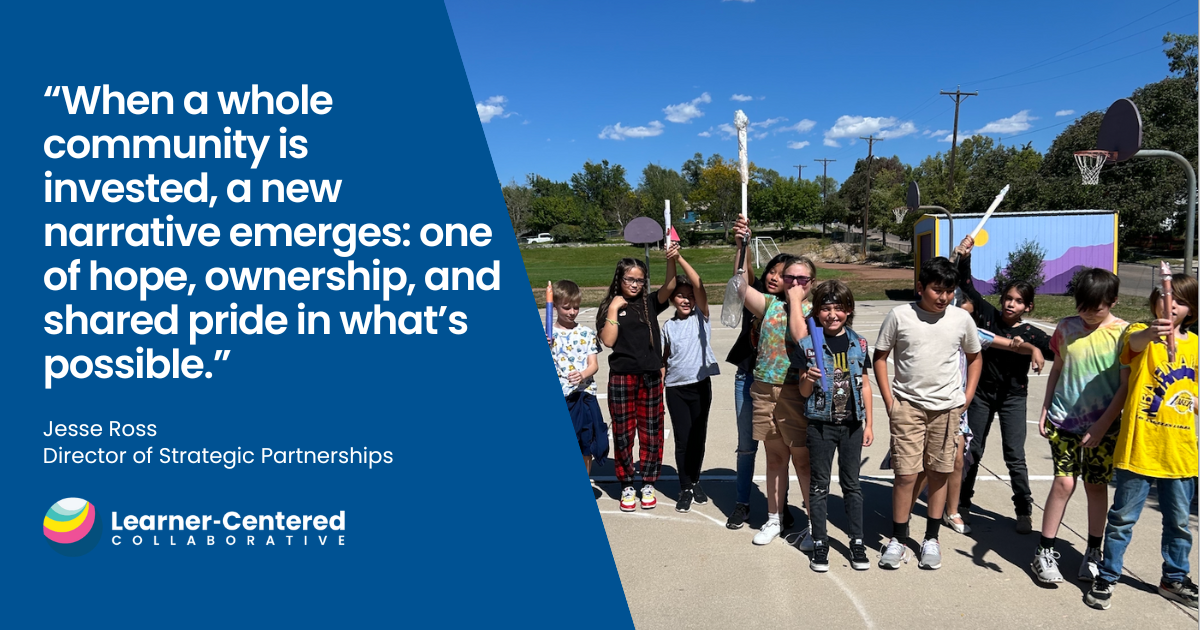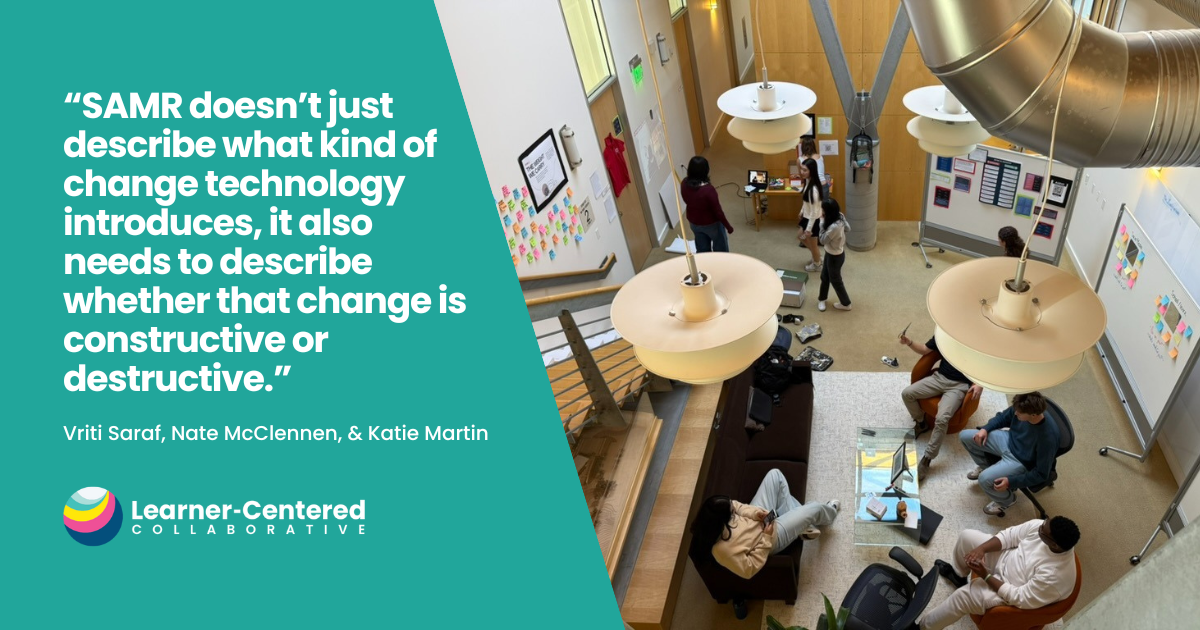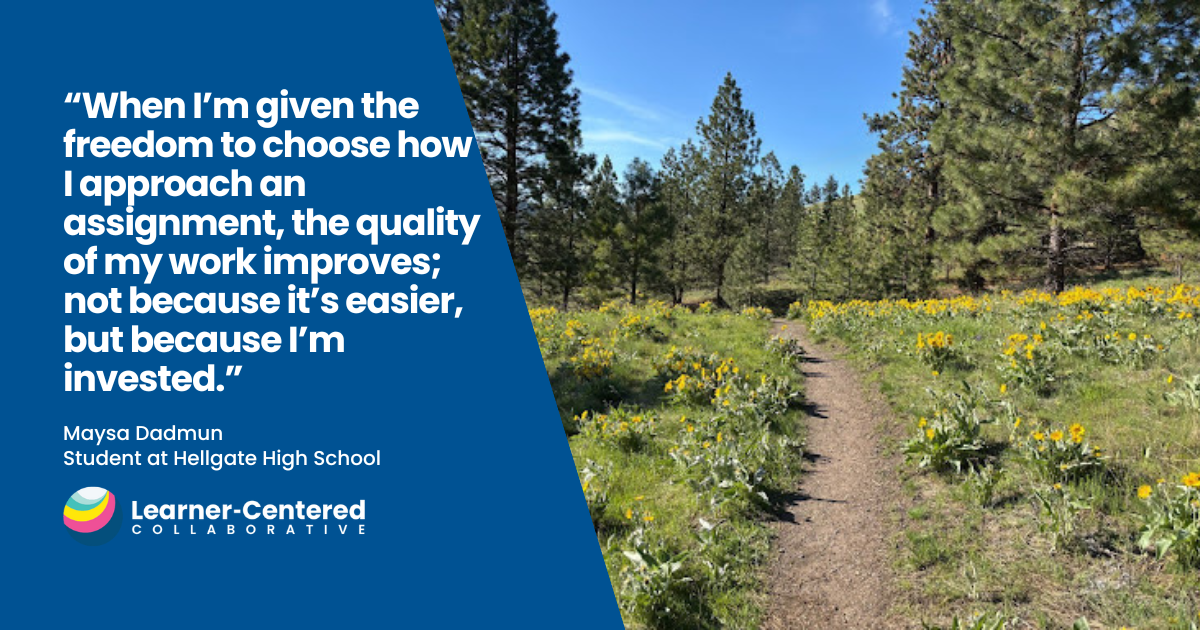A Spotlight on the UCSD + LCC Research Convening: Bright Spots and Networks

In July of 2023, the University of California, San Diego (UCSD) and the Learner-Centered Collaborative (LCC) announced a groundbreaking partnership to unite researchers, practitioners from LCC, and regional districts in advancing learner-centered practices. Among the key objectives of this partnership is to share knowledge and resources and disseminate findings to ensure broader impact of the research initiative. In the spirit of sharing and keeping the larger learner-centered community informed, Joanna Libby shares insights and reflections from the fourth research and practice team convening.
Q: This was the last convening of the 23-24 school year and one area of focus was on networks. What has been learned about the San Diego network?
Joanna: Over the last year, UCSD researchers surveyed the San Diego network to find the most common practices which included:
- Community liaisons
- Student-led conferences
- Restorative practices with students
- Empathy interviews
- Cross-stakeholder coalitions
The researchers created a visual representation of the network, showcasing the organizations (red nodes), practices (yellow nodes), and the connections between them. The size of the yellow nodes indicates the prevalence of each practice. This visual helps educators and administrators understand the current landscape of learner-centered practices in the San Diego network and identify areas for collaboration and improvement. As Bonsall Unified School District (BUSD) Superintendent Joseph Clevenger said, coming together to share and unpack these practices, “This is how we get better.”

Q: The other area of focus for this convening was on bright spots. What did you learn about Bonsall Unified School District’s Native Learner Advisory Committee?
Joanna: The Bonsall Unified School District (BUSD) team recognized that public education has historically underserved the Native American population. To address this issue, they started their journey by gathering and reflecting deeply to ask themselves, “What should be our priorities and our action plans?” From this reflection, they established four district priorities:
- Strengthening partnerships
- Amplifying voices
- Staff professional development
- Community responsive teaching and learning
A key initiative born from these priorities is the Native Learner Advisory Committee (NLAC), which was created “to create something tangible and real.” NLAC serves as a space for families, teachers, tribal leaders, admin, and students to gather in a circle, listen, and build trust.
Dr. Heather Golly, a member of the BUSD team, emphasized the importance of follow-through in building trust. She shared a powerful example of how the district responded to a parent’s request: “We did these sticky notes and we didn’t know if you’d come back [but] we asked for a tech night and three weeks later you came to Pala and provided a tech night.” This anecdote demonstrates the district’s commitment to listening to and meeting the needs of the Native American community, fostering a stronger sense of trust and collaboration.
BUSD also invested in professional development for educators, offering trainings such as Native Ways of Knowing, the Blanket Exercise, and Equity Conference breakout sessions. These sessions challenged educators to not only learn but also unlearn, fostering a more inclusive and culturally responsive learning environment. Though challenging, Eric Ortega, BUSD Board member, reminded us, “You can always achieve good things when everybody is thinking about the kids.”
Q: What are the UCSD researchers up to next?
Joanna: The UCSD research team is eager to explore success indicators, which are measurable factors that demonstrate the effectiveness of learner-centered practices. During the convening, they presented a comprehensive “menu” of success indicators and facilitated discussions on the relationships between goals, practices, indicators, and analysis. Participants shared the indicators they currently use and those they aspire to incorporate in the future. This collaborative exploration of success indicators will help guide the partnership’s research and implementation efforts moving forward.
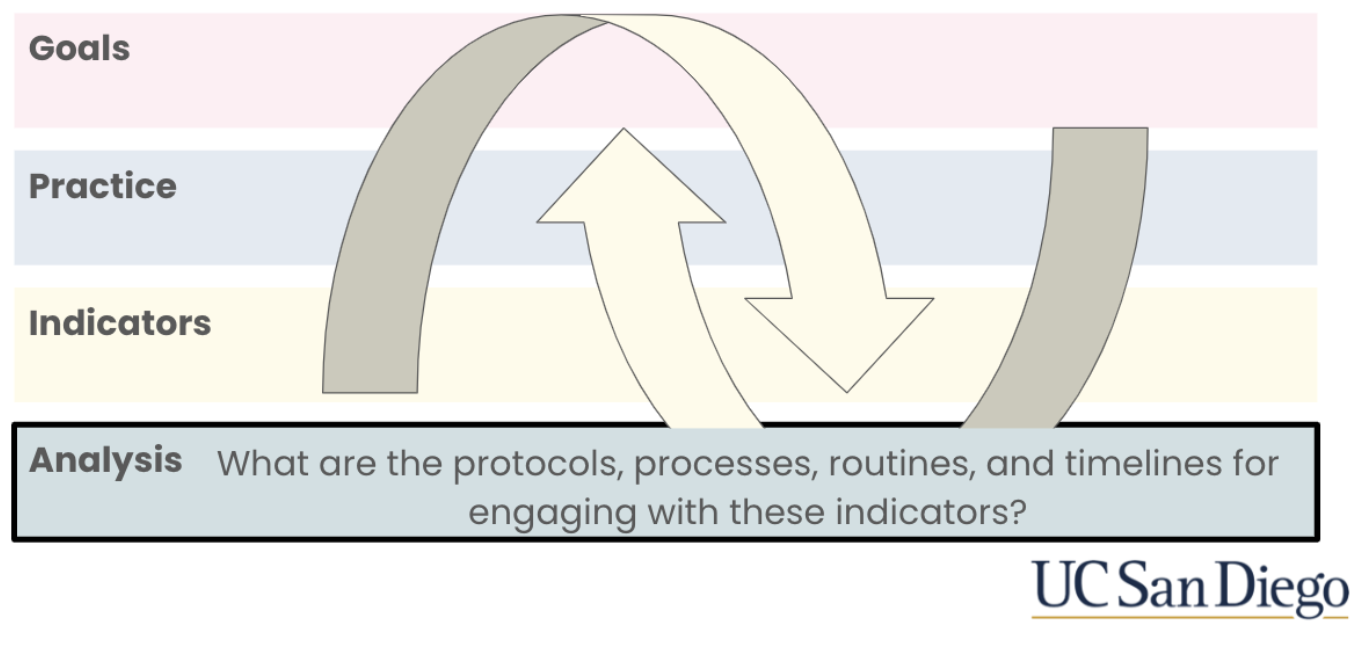
UCSD San Diego shared a visual representation of how districts engage with goals, practice, and indicators. They emphasized these steps are not linear and analysis happens throughout.
Q: How do you see LCC continuing to advance learner-centered education practices and generate evidence-based solutions?
Joanna: LCC is committed to advancing learner-centered education through multiple partnerships. In addition to our ongoing partnership with UCSD, we are also developing a partnership with Advanced Education Research and Development Fund (AERDF). AERDF recognizes the importance of combining practical experience and research to improve educational outcomes and student experiences. Together, we hope to share research questions, goals, learnings, and engage in collaborative exploration to advance learner-centered practices.
As we move into the 2024-2025 school year, the San Diego network and the UCSD partnership will prioritize learner agency, the role and experiences of educators, and “Big Moves” in learner-centered education. We look forward to sharing further insights, developments, and successes as we continue to work towards transforming education to better serve the unique needs of every learner. Stay tuned!
As the work continues, the UCSD-LCC partnership invites interested individuals to stay informed, get involved, and join future convenings by contacting collaborate@learnercentered.org or by filling out this form. Collaboration and partnerships are essential in transforming educational systems and advancing learner-centered practices.
